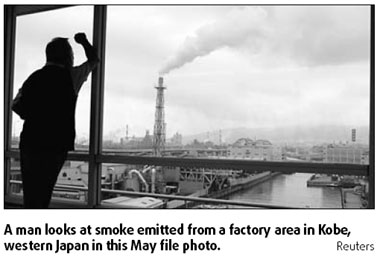Rich countries are partly responsible for pollution from poor ones, including poisonous mining discharge, because they buy many of the raw materials and goods that produce the waste, environmental groups said.

"In our part of the world, these problems have been fixed for the most part," said Richard Fuller, founder of the New York-based Blacksmith Institute, which has compiled a database of 600 of the world's worst polluted places.
"We have exported our industry overseas and yet there's no pollution controls in these places or the pollution controls are terribly inadequate."
Blacksmith and Green Cross Switzerland, which works to clean up contamination from industrial and military disasters, released a report on Tuesday called The World's Worst Polluted Places - available at www.worstpolluted.org.
It found that artisanal gold mining, contaminated surface water, radioactive waste processing and uranium mining and the recycling of used lead acid batteries, most of which occur in poor countries from Africa to Asia, are some of the world's top 10 sources of pollution dangerous to human health.
Millions of people are poisoned or killed each year by industrial pollution and emissions, it said.
To be sure, the developing world is also rife with problems that are not caused by the processing or manufacture of goods used in rich countries.
Indoor air pollution from cooking fires, which occurs mostly in Africa, is one key example, the report said.
And many of the products made or processed in rapidly developing countries are used domestically.
Still, children in developing countries are hit by pollution from many of the industries that make or process things used mostly by rich countries, including metals smelting and processing, lead battery recycling and the industrial mining of both common and precious materials, it said.
Children are more vulnerable to disease from toxic pollution than adults.
Rich countries should help mop up pollution sources not only because they are the world's largest consumers but because some pollution can travel over oceans through the atmosphere, eventually reaching consumers throughout the world.
(China Daily October 23, 2008)